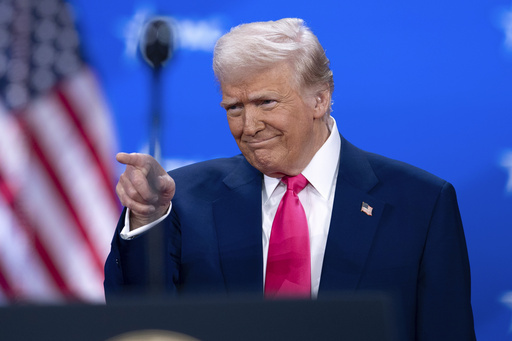Key U.S. agencies such as the FBI, State Department, and Pentagon have advised their employees to disregard the recent directive from Elon Musk, who is pushing for federal workers to account for their past week’s accomplishments, threatening job losses for non-compliance. This situation has thrown the federal workforce into further disarray, coming shortly after former President Donald Trump resumed his presidency and enacted his campaign pledge to downsize the government.
Over the weekend, officials scrambled to understand the implications of Musk’s unusual request. Although this initiative seems to have Trump’s endorsement, concerns about its legality have emerged from several lawmakers, with unions considering legal actions. Different agencies reacted in varied ways, leading to conflicting interpretations of Musk’s instructions. For instance, the Department of Health and Human Services, managed by Robert F. Kennedy Jr., directed its staff of around 80,000 to comply, even after some staff received guidance against it from the acting general counsel, Sean Keveney.
Keveney expressed his discontent in an email, stating that after working over 70 hours the previous week, he felt offended by Musk’s email. He raised concerns about security and the confidentiality of staff responses, claiming there were no guarantees that protections for attorney-client privilege would be in place in response to the email.
Musk’s communication to federal employees demanded them to report five specific accomplishments within a tight timeframe. In a follow-up message on X, he indicated that those who failed to submit by the Monday deadline would face termination. This ultimatum received backlash from both sides of the political aisle just hours after Trump publicly urged Musk to intensify his efforts in streamlining government operations through the so-called Department of Government Efficiency (DOGE). Earlier, Musk had also made headlines by showcasing a giant chainsaw at a conservative conference to declare his intentions.
Republican Senator John Curtis from Utah expressed sympathy for federal employees, stating that they are real people with real lives impacted by such demands. He argued for a more compassionate approach to government reductions. Similarly, Republican Representative Mike Lawler questioned the legal grounds for potentially dismissing workers who choose not to comply with Musk’s demands, despite the absence of a clear job loss threat in Musk’s correspondence.
Democratic Senator Chris Van Hollen was unequivocal in his stance, labeling Musk’s actions as illegal and calling for a halt to the operations instigated by him. Trump further belittled the affected employees through a meme posted on social media, trivializing their concerns.
Kash Patel, the newly appointed FBI Director and a close ally of Trump, instructed the bureau’s staff to hold off on responding to Musk’s request for the time being, declaring that the FBI’s review processes would remain under its operational guidelines. Meanwhile, Ed Martin, the interim U.S. Attorney for the District of Columbia, expressed confusion with his contradictory guidance to staff about compliance with Musk’s order.
In contrast, leadership within the State and Defense Departments offered a clearer perspective. Acting Undersecretary for Management Tibor Nagy affirmed that no employees were required to disclose their activities outside the regular chain of command. Similarly, Defense Department officials directed their employees to pause any responses to Musk’s request, asserting their own review authority.
As Trump’s second term has commenced, thousands of federal employees have already lost their jobs through dismissals or forced resignations. Although exact figures on total layoffs remain unconfirmed, reports indicate that hundreds of thousands of federal workers are now adversely affected, especially those outside Washington D.C.
Musk, in defending his stance, labeled the inquiry as merely a “basic pulse check” for government productivity, further alleging that many employees fail to engage with their work. He claimed without evidence that fraud might be occurring within employee accounts, raising dubious allegations of non-existent individuals collecting government paychecks. Recently, both Musk and Trump have made unfounded claims about a substantial number of deceased individuals supposedly receiving Social Security benefits.
In the wake of these developments, many federal workers, including probationary civilian employees at the Pentagon and contractors at USAID, are now preparing for potential departures from federal service. The situation escalates further scrutiny into the administration’s plans, particularly regarding USAID and its frozen funding due to ongoing shakeups.
These recent events were discussed widely on various talk shows, showcasing the fierce debates around the implications of Musk’s demands on the federal workforce.




